FOOD TO FAMILIES RETURNS
| Published: 07-16-2023 5:00 PM |
GREENFIELD – Gardens and farms across the county are abundant in squash, cucumbers and Swiss chard this season—even in unexpected places like the Franklin County Jail.
Last week, the jail restarted its Food to Families program, which began in 2019 but was halted during the pandemic.
Visitors and loved ones of incarcerated individuals involved in the jail’s farming program can apply to receive a weekly farm share filled with organic produce grown by the people at the jail. The shares include vegetables, fruits, herbs and flowers, all handpicked in the various gardening programs.
“I love this program. It is good to get outside. I love learning about herbs and health benefits and learning how to keep pests away,” said Brandy Chilson, an incarcerated individual in the program.
Gardening programs at the jail began in 2015 and were expanded to include the women’s unit in 2017, according to Education Coordinator Jenny Abeles. The program was further expanded in 2019 after a presentation given by the inmates during a Greenfield Community College class about food and farm systems.
For the final project, the incarcerated students were asked to create programs for the community at the jail. One presentation introduced the idea behind the Food to Families program. After attending the presentation, the sheriff liked the idea so much that it was implemented.
Garden Instructor Caroline Bruno explained that the idea behind the program is to address the difficulty of connecting with family members and loved ones while living inside the prison.
“This is an opportunity to provide delicious fresh food and build a connection with their families,” she said.
Article continues after...
Yesterday's Most Read Articles
 Work on Pinedale Avenue Bridge connecting Athol and Orange to resume
Work on Pinedale Avenue Bridge connecting Athol and Orange to resume
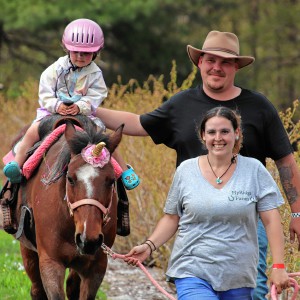 PHOTOS: Enchanted Orchard Renaissance Faire at Red Apple Farm
PHOTOS: Enchanted Orchard Renaissance Faire at Red Apple Farm
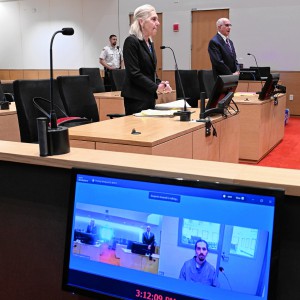 Lawyer argues Joshua Hart’s 2018 conviction for Orange murder had inconsistent verdicts
Lawyer argues Joshua Hart’s 2018 conviction for Orange murder had inconsistent verdicts
 UMass basketball: Minutemen nab another transfer in Arizona State forward Akil Watson
UMass basketball: Minutemen nab another transfer in Arizona State forward Akil Watson
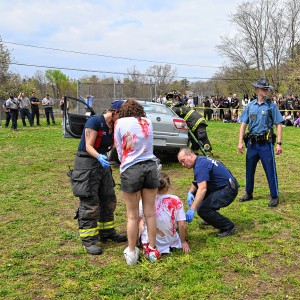 ‘Arrive Alive’ shows Athol High School students the dangers of impaired driving
‘Arrive Alive’ shows Athol High School students the dangers of impaired driving
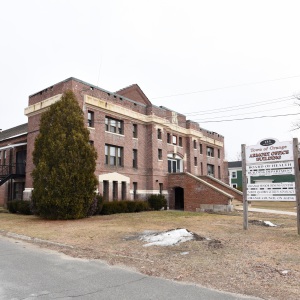 Orange Selectboard declares armory as surplus property
Orange Selectboard declares armory as surplus property
This program not only connects the incarcerated with their families, but Bruno said that it also fosters a broader connection between people inside the jail and the outside world.
“When I start my life anew this fall, I will have a new experience in my portfolio,” said one individual in the program who asked to be identified as M.
Abeles explained that the education about food and gardening can be transformative for students. Bruno added that it also allows the inmates to relax and work at a slower pace in a collaborative environment.
“We learn that all you give to the Earth, you get back,” said one anonymous participant in the program. “Some of the guys don’t buy into it, but I think it’s good.”
Bruno said that the program attracts people with a variety of backgrounds and experiences. Some have extensive knowledge, while others have a burgeoning curiosity about gardening. She added that the simple fact of providing access to hands-on learning outdoors is greatly appreciated. This program is the only opportunity for the inmates to be outside.
“When you spend 23 hours in a cell, you feel like an animal in a cage,” said the anonymous participant, expressing appreciation for the fact that this program takes place outdoors.
The program allows people to explore various skills. Bruno mentioned that one participant has taken up flower arrangements, leading the gardening program to consider offering a flower bouquet-making class. Other lessons include holistic medicine and herbalism. Additionally, twice a year, Ricky Baruch and Deb Habib from Seeds of Solidarity Farm in Orange teach a class on no-till and organic practices.
Bruno stressed that teaching hobbies like gardening can be instrumental in helping people recover from addiction.
“When we were cleaning the vegetables with a hose, it felt like summer camp,” said the anonymous participant.
Many of the program participants are part of the treatment unit at the jail. This unit, offered to both sentenced individuals and those awaiting sentencing, rewards 10 days off a person’s sentence for every month spent in the unit. The unit includes mandatory programs such as dialectical behavior therapy (DBT) or acceptance and commitment therapy (ACT).
“We are trying to have the people situated here use their time productively,” Abeles said. She explained that they have seen great results from the unit, and it has been an intentional decision by the current sheriff to provide this program to the inmates.
With the minimal-security area of the jail opening this week for the first time since COVID began, many participants in the garden program expressed excitement about moving to minimal security where they will have more privileges, including access to a lawn with garden plots.
“I am being transferred to the minimal security as a result of staying consistent, and the garden is an integral part of that,” M said.
Bella Levavi can be reached at 413-390-4579 or blevavi@recorder.com

 $700K debt exclusion would fund repairs to Raymond Hall
$700K debt exclusion would fund repairs to Raymond Hall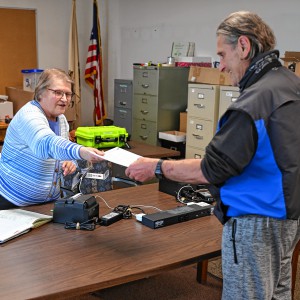 Erving voters say ‘no’ to $3.7M debt exclusion
Erving voters say ‘no’ to $3.7M debt exclusion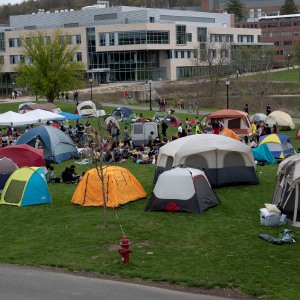 More than 130 arrested at pro-Palestinian protest at UMass
More than 130 arrested at pro-Palestinian protest at UMass